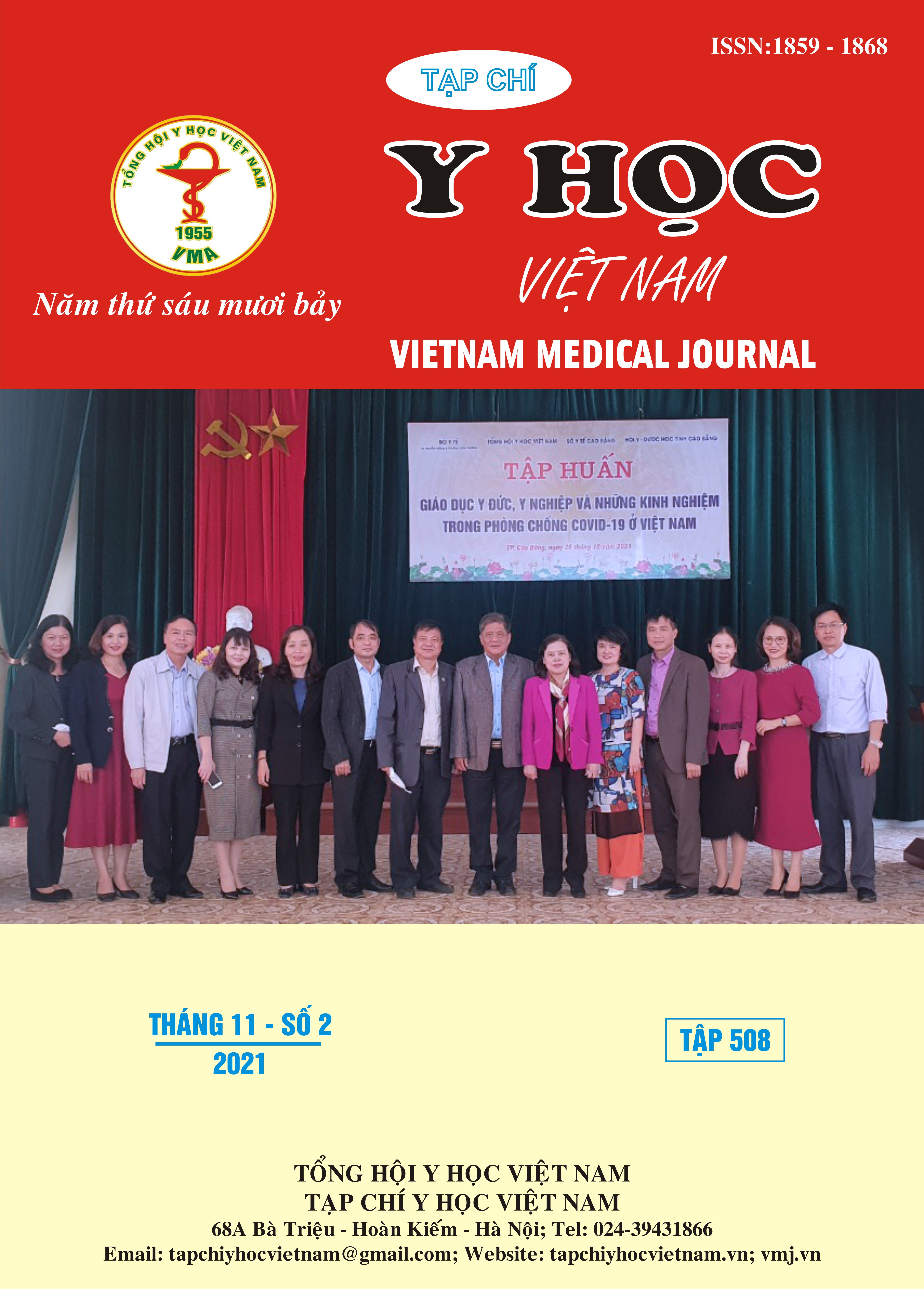PREVALENCE OF METHICILLIN RESITANCE S. AUREUS AND EFFICACY OF ANTIBIOTIC COMBINATION BETWEEN VANCOMYCIN AND CEFEPIME OR GENTAMICIN AGAINST MRSA ISOLATED FROM BAC LIEU GENERAL HOSPITAL
Main Article Content
Abstract
Background: Methicillin resistant S. aureus (MRSA) is listed by Centers for Disease Control and Prevention as one of the: “Antibiotic Resistance Threats in the United States” because of its severity and multidrug resistance. Antibiotic combination treatment for MRSA infections has been shown promising treatment. Objective: To determine percentages detection of MRSA and efficacy of antibiotic combination between vancomycin and cefepime or gentamicin against MRSA strains. Methods: From 125 strains of S. aureus that were identified and performed routine antibiotic susceptibility testing by automated machine (Vitek2 Compact), 111 MRSA strains were determined by MIC (minimum inhibitory concentration) cefoxitin screen available in card AST-P592. In vitro antibiotic combination between vancomycin and cefepime on 111 MRSA strains; vancomycin and gentamicin on 53 MRSA strains by microdilution (checkerboard) method. Results: Prevalence of MRSA is 88.8%. MRSA was most widely distributed in pus (61.3%), fluid (22.5%), sputum (10.8%) and blood (5.4%). Based on the FIC (Fractional Inhibitory Concentration) index, vancomycin-cefepime combination showed synergism (45%), additive (51.3%), independent (3.6%) and no antagonism. Vancomycin-gentamicin combination showed synergism (39.6%), additive (58.5%), independent (1.9%) and no antagonism. Conclusion: High rate of MRSA was recorded at Bac Lieu General Hospital. Antibiotic combination between vancomycin and cefepime or gentamicin for high synergistic and additive effect against MRSA strains. The research results are the basis for doctors to consider the choice of antibiotic combination and the premise to study the effectiveness of antibiotic combination in clinical practice.
Article Details
Keywords
S. aureus, MRSA, combination antibiotics, vancomycin, checkerboard
References
2. Bhise K, Sau S, Kebriaei R, et al (2018), "Combination of Vancomycin and Cefazolin Lipid Nanoparticles for Overcoming Antibiotic Resistance of MRSA", Materials (Basel), 11 (7), pp. 1996-1944 (Print).
3. Clinical and Laboratory Standards Institute (2021), "Perormance Standards for Antimicrobial Susceptibility Testing", M100S31,31st Edition, Clinical and Laboratory Standards Institute.
4. Davis JS, Van Hal S, Tong SY (2015), "Combination antibiotic treatment of serious methicillin-resistant Staphylococcus aureus infections", Semin Respir Crit Care Med, 36 (1), pp. 3-16.
5. Drago L, De Vecchi E, Nicola L, Gismondo MR (2007), "In vitro evaluation of antibiotics' combinations for empirical therapy of suspected methicillin resistant Staphylococcus aureus severe respiratory infections", BMC Infect Dis, 7 (1), pp.1-7.
6. Mulazimoglu L, Drenning SD, Muder RR (1996), "Vancomycin-gentamicin synergism revisited: effect of gentamicin susceptibility of methicillin-resistant Staphylococcus aureus", Antimicrob Agents Chemother, 40 (6), pp. 1534-1535.
7. Ortwine JK, Werth BJ, Sakoulas G, Rybak MJ (2013), "Reduced glycopeptide and lipopeptide susceptibility in Staphylococcus aureus and the "seesaw effect": Taking advantage of the back door left open?", Drug Resist Updat, 16 (3-5), pp. 73-79.


